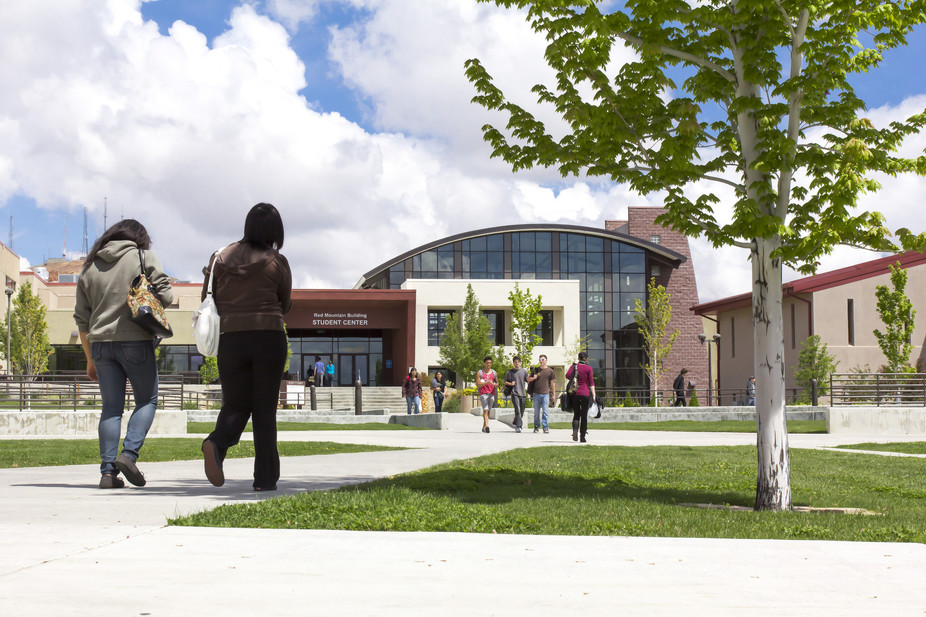Here’s another reason why many community college students do not get their degree

Daniel Eisenberg, University of Michigan and Sara Goldrick-Rab, University of Wisconsin-Madison
The growth of community colleges in the U.S. has improved access to higher education tremendously, especially for students from low-income families. However, completion rates at these schools are less than 30 percent.
Could the mental health of community college students play a role in their degree completion?
We recently partnered with researchers, nonprofits and community colleges across the country to study the mental health conditions of community college students.
Mental health on college campus
The first signs of most mental health conditions often appear during or before the typical college age range – 18 to 24 years. Symptoms can include lack of energy, loss of concentration, lack of sleep or even substance abuse, which can affect school performance. Depressed or anxious students can also feel pessimistic and lose their motivation.
In previous research, we and other research groups have extensively documented the high prevalence of mental health disorders in four-year institutions. Recent studies also indicate that mental health disorders could be increasing among the youth.
What about mental health issues of community college students specifically?
Compared to four-year schools, community colleges draw student populations with higher poverty and other socioeconomic disadvantages, which could increase their vulnerability to mental health conditions.

Community college students are more vulnerable to mental health problems. trizoultro, CC BY-ND
So in winter 2015, we conducted an online survey of a random sample of over 4,300 students at 10 community colleges across the nation, and used standard brief assessments to measure symptoms of mental health conditions such as depression and anxiety.
To compare with four-year school populations, we examined these same measures from Healthy Minds Study, a national survey from the academic year 2014-2015, which included nearly 16,000 respondents from 16 institutions.
Here are the community college data
The results from our study “Too Distressed to Learn” leave little doubt that mental health is, in fact, a major concern for community college students.
Nearly half (49 percent) of community college students show symptoms related to one or more mental health condition, such as depression, anxiety, suicidal ideas, nonsuicidal self-injury or eating disorders.
In other words, approximately six million students, of the approximately 12 million students in community colleges nationwide, have symptoms of mental disorders. We found depression and anxiety to be among the most common conditions. About 36 percent students showed symptoms of depression and 29 percent had disorders related to anxiety.
For younger students ages 18-24 in community colleges, these numbers are even higher: 40 percent for depression and 33 percent for anxiety.
Furthermore, mental health conditions appear to be considerably higher at community colleges, as compared to four-year schools. Among students ages 18-24, 23 percent of community college students are experiencing the most severe frequency and number of depressive symptoms, as compared to 11 percent of four-year students.
Are students getting help?
This troubling situation is compounded by the fact that most students with mental health conditions are not receiving adequate support.
Among community college students with a mental health condition, we found only 41 percent were receiving any mental health care (counseling and/or medication) in the previous year. This number is even lower – 35 percent – among community college students in the age group 18-24. Although still not adequate, by comparison, 45 percent of students in the age group 18-24 find support at four-year schools.
There is a similar disparity in the counseling or support that students receive from non-clinical sources, such as friends and family: 60 percent among community college students, compared to 79 percent among four-year students.
The lower use of mental health services among community college students is driven in part by the fact that more of these students lack health insurance: 14 percent, compared to just 3 percent in our four-year sample.
Additionally, community colleges offer significantly fewer campus services.

Fewer community college students have access to mental health services. Joe Houghton, CC BY
For example, many community colleges do not have any mental health counselors, and among those that do, the ratio of counselors to students is 1 to 3,000, compared to 1 to 1,600 at four-year institutions.
Here’s what can be done
The reality is that improving this situation will likely require an influx of additional resources, particularly more robust campus health services and programs. So, how can institutions and other stakeholders build support for funding these resources?
For many years, four-year schools have been using data extensively to make the case for increased support of mental health services. Data from our study, which is one of the first large-scale assessments of mental health among community colleges throughout the nation, could serve as a starting point.
We know there is a relationship between depression and student retention. In fact, four-year schools have used this argument persuasively for finding more resources.
In addition, there are a number of partnership opportunities, and successful experiences at other institutions nationwide, from which institutions and students can benefit. For example, many students today are engaging in peer-led initiatives.
An example of such an initiative is Active Minds, a national organization supporting student advocates for mental health. It has chapters at over 400 campuses (including some community colleges). Campus administrators can partner with the Campus Program of Jed Foundation, which helps institutions help develop and implement a campus-specific plan to improve their support for student mental health.
Single Stop is another national nonprofit that has been assisting community college students with accessing public benefits and services; such an organization can also help students access mental health services in their respective communities.
It would be easy to view our new findings as another reason to be discouraged about the state of higher education, particularly community colleges. But we believe these findings highlight a whole new set of opportunities to improve the prospects for millions of students.
An ever-growing wealth of services and programs can treat or prevent mental health conditions. The challenge, and opportunity, is to make more and better investments in this area.
![]()
Daniel Eisenberg, Associate Professor of Health Management and Policy, University of Michigan and Sara Goldrick-Rab, Professor of Educational Policy Studies & Sociology, University of Wisconsin-Madison
This article was originally published on The Conversation. Read the original article.






